


“Everybody In, Nobody Out”
05/06/2024
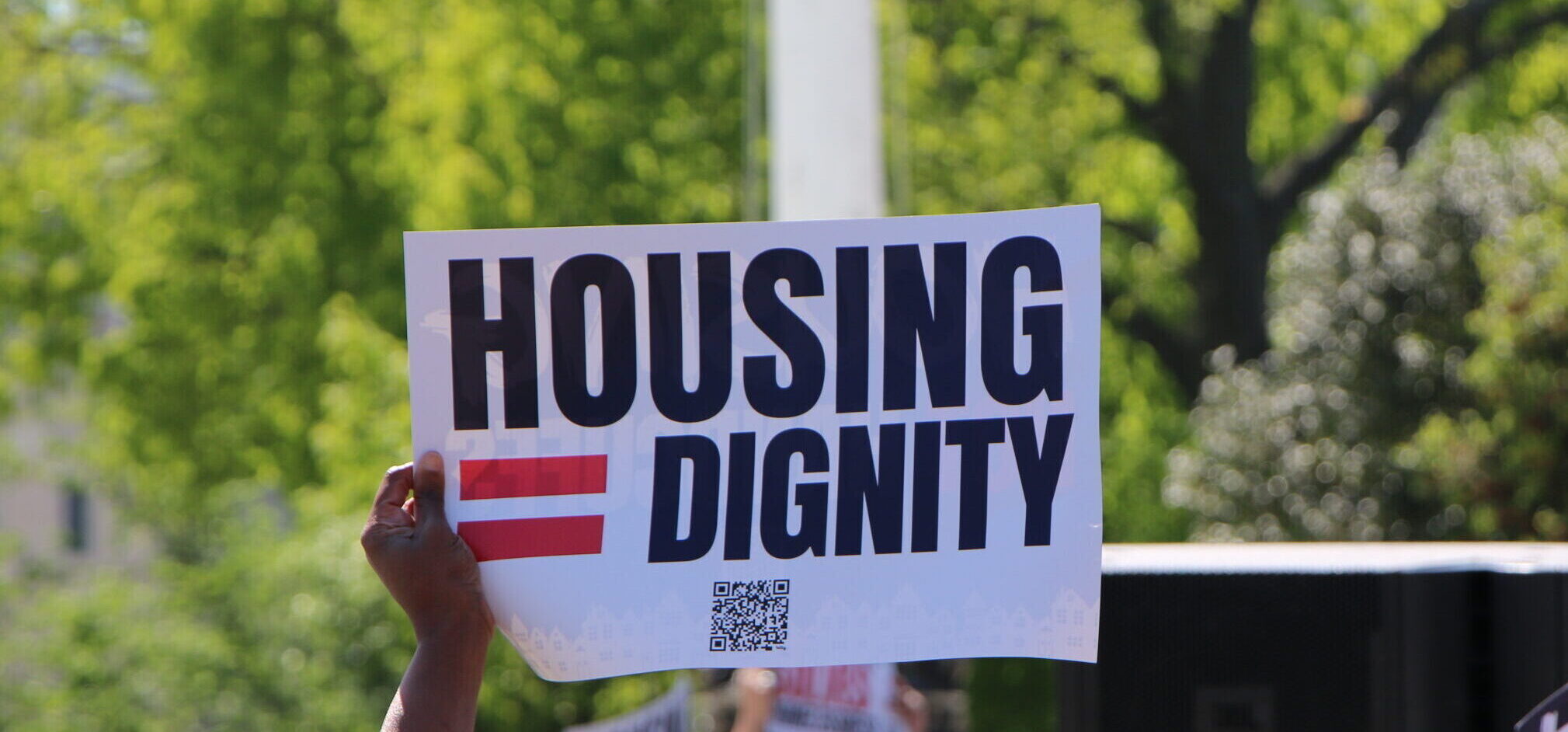
Broadcasting a shared narrative from the steps of the Supreme Court of the United States
In late April, the Housing Narrative Lab joined the National Homelessness Law Center, the National Coalition for the Homeless and hundreds of other national partners, organizers and advocates on the steps of the Supreme Court. We gathered to be with each other while the highest court in the country debated whether cities could ticket and fine people who are unhoused in the case of Johnson vs. Grants Pass. We were there to share our vision for a world where everyone has a safe place to sleep.
Busses of current and formerly unhoused leaders rolled in from Texas, Tennessee, Philadelphia, Indiana, New York City and beyond. In speech after speech, we heard advocates share their stories about being unhoused after leaving foster care, fighting for unhoused veterans and abuse survivors and much more. You can view the full two hours of chants and speakers here.
This rally shows our power when we come together, work in real partnership and share our vision for a future where everyone has a safe and affordable place to live.
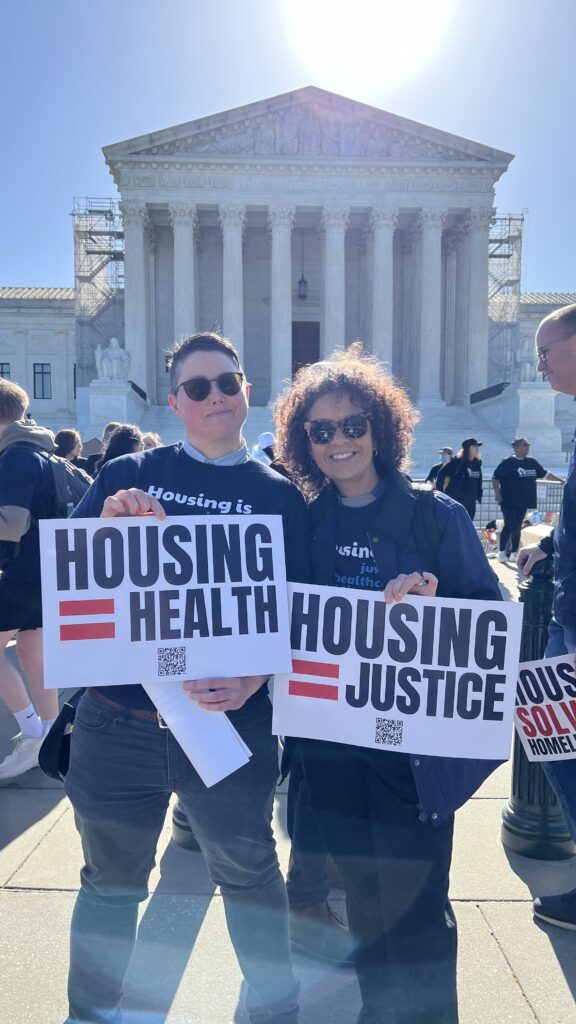
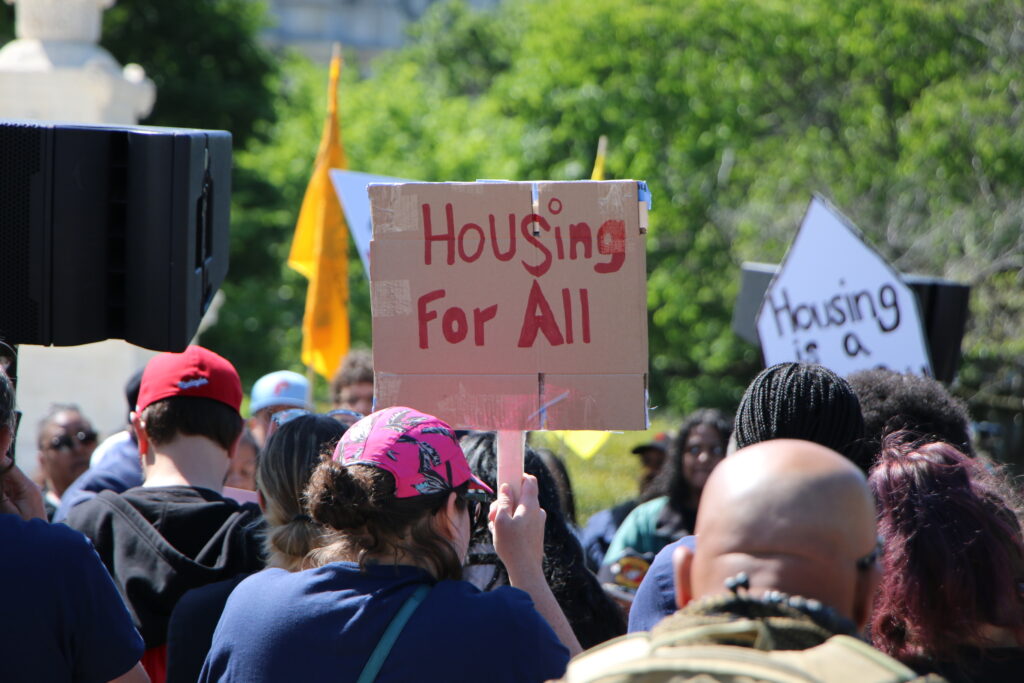
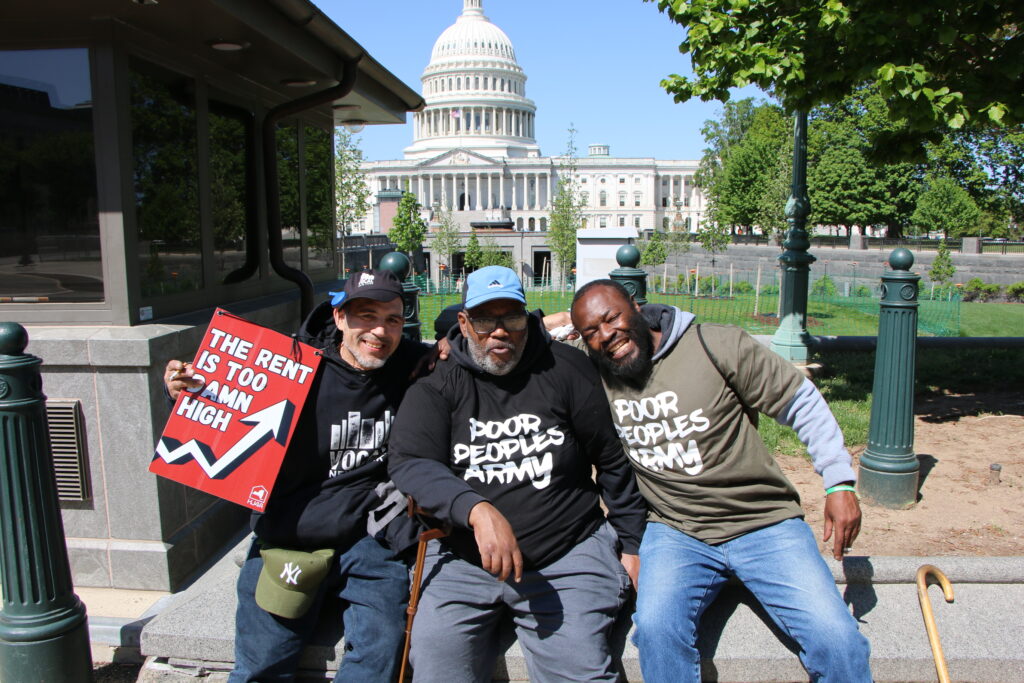
Broadcasting a Shared Narrative
Leading up to the rally and the SCOTUS hearing, we partnered with the National Homelessness Law Center and Lake Research Partners to better understand what most Americans think about homelessness and cities’ attempts to ticket and fine people who are unhoused. The study found that 72% of survey respondents reject jailing, ticketing and fining people for sleeping outside when no other shelter is available. 61% of respondents said rent or the cost of housing being too expensive for people to afford is a major factor that contributes to people sleeping or living outside.
Broadcasting a shared narrative that everyone needs a safe place to sleep at night is an important part of building the public will to solve homelessness. We shared the research findings and messaging recommendations with rally speakers, advocates and organizers to amplify the shared narrative and reach people who reject ticketing and fining but do not know how we can solve homelessness.
And overwhelmingly, despite our different experiences and areas of expertise, the main argument was evident throughout the day:
“Our unhoused neighbors are people too, with dignity, with emotions, with hopes and dreams. And that’s why I know that the best way for local elected officials to address homelessness is to provide them with a place to call home. Punishing people for trying to survive outside is not only dehumanizing, it’s ineffective.” Alicia Sonnier, Alderwoman in the City of St. Louis
“Arresting, fining and ticketing people does not make homelessness better. People do not choose to be homeless. It is the result of broken promises, mass incarceration and red lining.” Donald Whitehead, National Coalition for the Homeless.
Building a shared narrative is not simply asking a large number of people to use the same words to describe a problem – such as ticketing and arresting – or to use hopeful words more than discouraging words (though that’s important too). Building a shared narrative includes circulating the core narrative values, images and messages broadly and in forms that are relatable to different audiences.
For example, one way to spread narratives is through visuals, like rally shirts, flags, chants and signs. The Lab’s message guidance was seen everywhere at the rally!
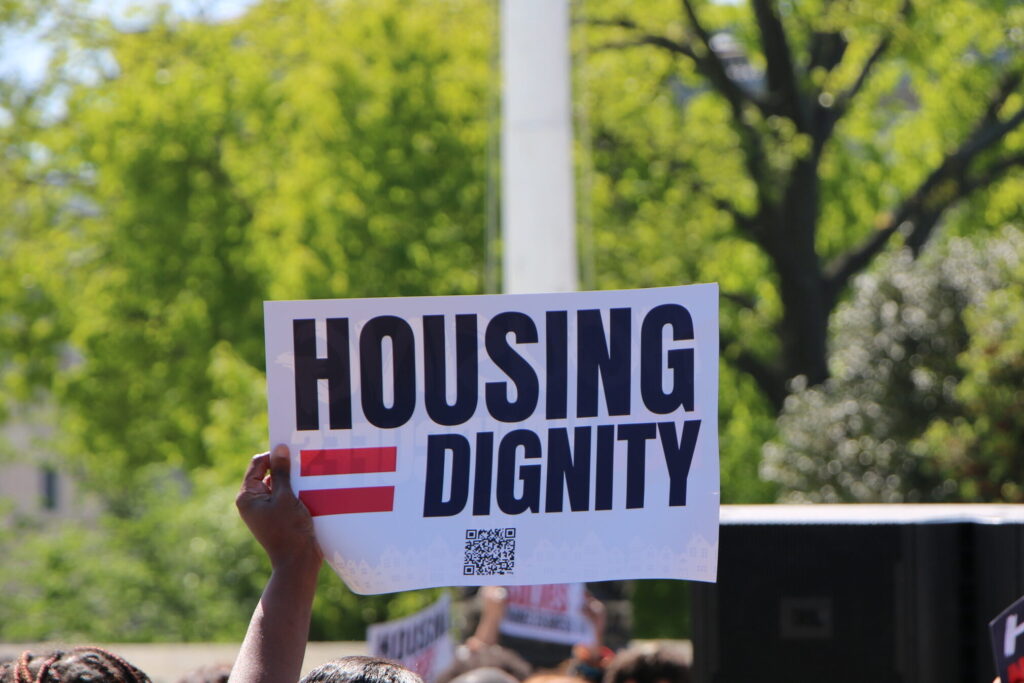
The rally was an important moment to disseminate these messages widely, but narrative change will not happen in one day. It will require this kind of coordination, repetition and masses of people moving with a shared goal over the course of many years.
Everybody In
Our research found that an astounding number of survey respondents have personal experiences with the issues at the heart of the case being heard. Two-thirds (66%) of the survey respondents have a personal connection to housing instability (either having personal experience or know someone with personal experience). Almost three out of five people (59%) have a personal connection to homelessness.
Reverend Dr. William Barber II is the founder of the Moral Mondays movement, co-chair of the Poor People’s Campaign and a famously powerful speaker. He wasn’t part of the group of people receiving our narrative recommendations, but he’s an expert at giving speeches that use best practices to shift deeply held narratives.
His speech emphasized shared values, included personal stories and named how poverty and homelessness impact people across race and region. He criticized the official federal numbers of people who experience homelessness, emphasizing the wide reach of poverty and housing insecurity in this country. His words were informed by his role as a faith leader and long-time anti-poverty advocate.
“Poor and low-wage people can build and vote for a new America where the vision is everybody’s in: Everybody in affordable housing. Everybody has a living wage. Everybody has a job. Everybody has healthcare. Everybody has good education. Say it with me: everybody in, nobody out.”
WHAT IS NEXT
Our most recent survey findings show that most people in the United States have struggled to keep a roof over their heads or care about someone who has and that most people oppose ticketing or fining people who have to live outside or in their cars. It shows that housing costs and availability impact so many of us. No matter what the Supreme Court decision says in June, we should continue to call on officials to focus on real solutions that will ensure everyone has a safe place to live, not ticketing and fining people who have nowhere else to go.
Later this month we’ll share more from the research, including another message guide to support the ongoing work to ensure everyone has a safe and affordable place to come home to.
Sign up for our newsletter to get invitations to upcoming events and view the resources when they are available.
1828 L St. NW
Suite 300
Washington, DC 20036
© Copyright 2025 Privacy Policy